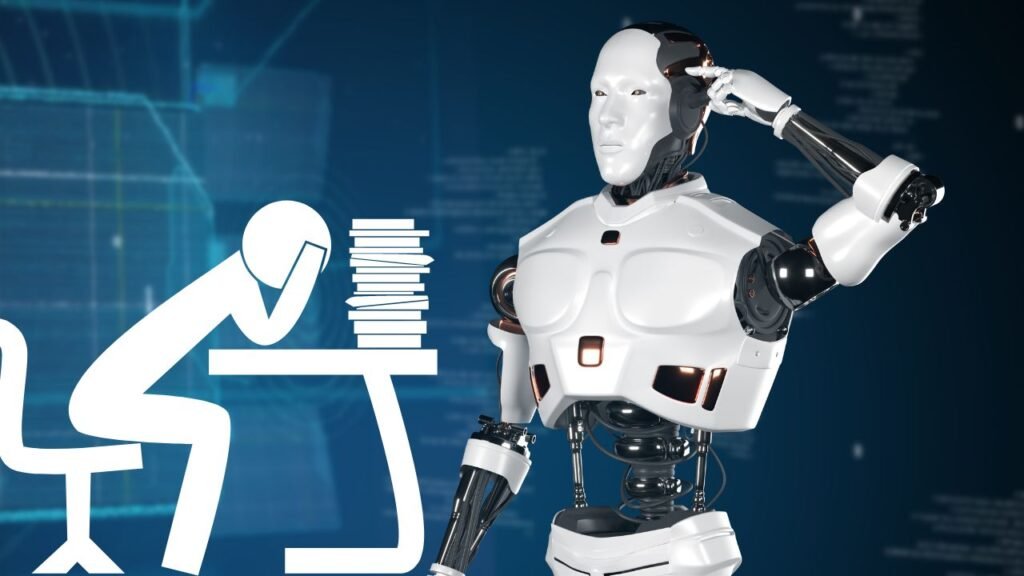Gen Z think ChatGPT gives better career advice than managers: Report
The TheINTOO analysis, nearly half (47 percent) of Gen Z employees believe ChatGPT provides better career guidance than their bosses.

The visionary people around us and their guidance are essential for the proper development and progress of our careers. However, because work life is so hectic, it can be rather challenging to locate the ideal counsel both locally and at work.
A recent survey stated that younger workers are turning to AI for career advice because they believe their bosses are “too busy” to provide it.
In The INTOO analysis, nearly half (47 percent) of Gen Z employees believe ChatGPT provides better career guidance than their bosses.
The survey covered 1,600 US workers, where Gen Z employees are the most willing to seek career assistance, but they also encounter obstacles from bosses in doing so.
Gen Z employees “struggle to get the support needed to advance in their careers” because they feel “detached” from their bosses.
It was shown that while 62% of Gen Z employees would prefer to speak with their supervisors more frequently regarding their careers, their managers are “too busy” to talk about professional growth.
Lucy Fitzgerald, the CEO and creator of Fitzgerald HR, said, “It’s a worrying statistic that 47 percent of Gen Z workers trust the career advice they get from ChatGPT over their own manager.”
It’s difficult to drive forward while staring in the rearview mirror, as the expression goes. It is not a real-time tool, ChatGPT. Furthermore, it is making use of the historical data that it was designed with.
“Rather than the specific detail people need to really elevate their development and enable them to take those next steps, AI tools produce generic, high-level information.”
Therefore, she continued, managers who ignore input run the danger of making matters worse for themselves in the midst of a general lack of skill.
“Organizations need to get this right because we know that development opportunities are a major factor in employee retention,” she stated.
ChatGPT careers advice: how did it fare?
People Manager tested ChatGPT to see if it could take the place of a careers talk with a manager.
We questioned it about potential job advancement and ways to take on more responsibility in order to pursue a promotion. To which ChatGPT said, “You’ll position yourself as a strong candidate for promotion and advance your career within your organization by taking proactive steps to seek out additional responsibilities, develop new skills, and demonstrate your leadership potential.”
It recommended a nine-point plan, which included:
“Seek feedback on areas where you can grow and contribute more to the team or organization” should be the topic of your initial talks with supervisors.
Take initiative and look for “stretch assignments” to volunteer for projects and “showcase your skills” to a wider audience.
Keep track of your accomplishments “to show the impact you have had on the organization.”
Though it “doesn’t provide the required level of detail you’d need to implement the advice in practice,” Fitzgerald described the counseling as a “good starting place.”
Recommendations might not apply to particular positions, industries, or organizations. “What might be relevant for an individual in an entry-level position probably won’t apply to someone trying to advance into a C-suite role,” the speaker continued.
Vivup’s people and culture director, Jennifer Healy, concurred, stating that while the guidance is a “textbook guide,” it does not eliminate the necessity for an employee to speak with their boss.
Actually, the first piece of advice suggests striking up a discussion with your manager. The employee will have a personal session in which they will explore their areas of strength and growth. They will also get the chance to talk about initiatives and opportunities that could be available inside the company.
For neurodivergent professionals, the “crucial element of personalized, human-centric guidance” is even more crucial because it includes subtleties that ChatGPT cannot comprehend. AdviserPlus’s HR technical consultant, Hayley Saunders, told to PM.
“AI programs are often data-driven, having been trained on sets of data that could introduce biases that produce skewed outcomes. They might not fully comprehend the variety of ways that people with neurodivergent traits learn, process information, and interact with the world.
“This may result in recommendations that aren’t catered to their individual requirements or tastes.”
Role of managers in supporting career development
The report highlights a more general problem with management assistance and competencies in the workplace.
According to Saunders, “many managers heavily rely on HR support because they lack the necessary tools or skills to manage their teams effectively.”
“This dependency may make it difficult for them to manage situations right now, which impedes the growth of relationships with their teams based on trust.”
Managers who experienced the pre-pandemic working world and Gen Z employees, who have only ever known flexible scheduling and work from home, would be even more at odds with one another.
As a result, according to Saunders, Gen Z workers “may feel they’re lacking sufficient human connection, causing a hesitancy to open up and turn to alternatives like ChatGPT for support.”
The trend “speaks volumes,” according to HR Inspire’s relationship director Suzanne Hurndall, who told PM about how younger workers’ expectations are changing and how the workplace is changing.
“Gen Z expects more customization in their career paths, so employers must provide a range of opportunities for training and development,” the speaker stated.
This generation’s use of ChatGPT for career advice draws attention to any possible weaknesses in the established workplace mentorship programs. Companies must provide managers the tools they need to encourage and assist staff members. They must communicate openly and consistently with their teams.
She cautioned that failing to do so would result in these workers’ “unrealized potential.” Managers have a “wide breadth of responsibilities,” according to Fitzgerald, so talking about employees’ well-being is “low down on their priority list.”
For corporations, however, it might be detrimental to ignore professional advancement. According to research by INTOO and Workplace Intelligence, 84% of Gen Z employees believe that learning and development (L&D) chances are “just as” (54%) or “more” (30%) valuable than getting promoted or having a title changed.
Effective team management is one of the most crucial responsibilities of a line manager, and leaders need to recognize this. More time will need to be set out for these kinds of conversations and team engagements, according to Fitzgerald.
Further, she agreed with Gen Z attitudes that career discussions should be held continuously rather than annually, as traditionally held. These talks could be incorporated into talks about ongoing initiatives at work and other goals to make them routine and instinctive.
“This will benefit the employee as well as the organization’s succession planning and building a pool of outstanding candidates for the company.”
Read more HR news like this on PropleManager.co.in
v
Value our content… contribute towards our growth. Even a small contribution per month would be of great help to us. Since our establishment, we have been serving the industry through daily news and updates.
Our content is free for all, and we plan to keep it that way
Support the People Manager. Pay Here
- The 26‑Day Formula for Wage Computation is not valid, adopt fair practices: Rajasthan High Court - February 19, 2026
- HiLITE Group Gifts 47 Cars Worth Rs. 20 Crore to Employees - February 18, 2026
- Financial Crisis Cannot Compel an Employee to Work, Resignation Rejection Amount to Bonded Labour: Kerala High Court. - February 17, 2026








